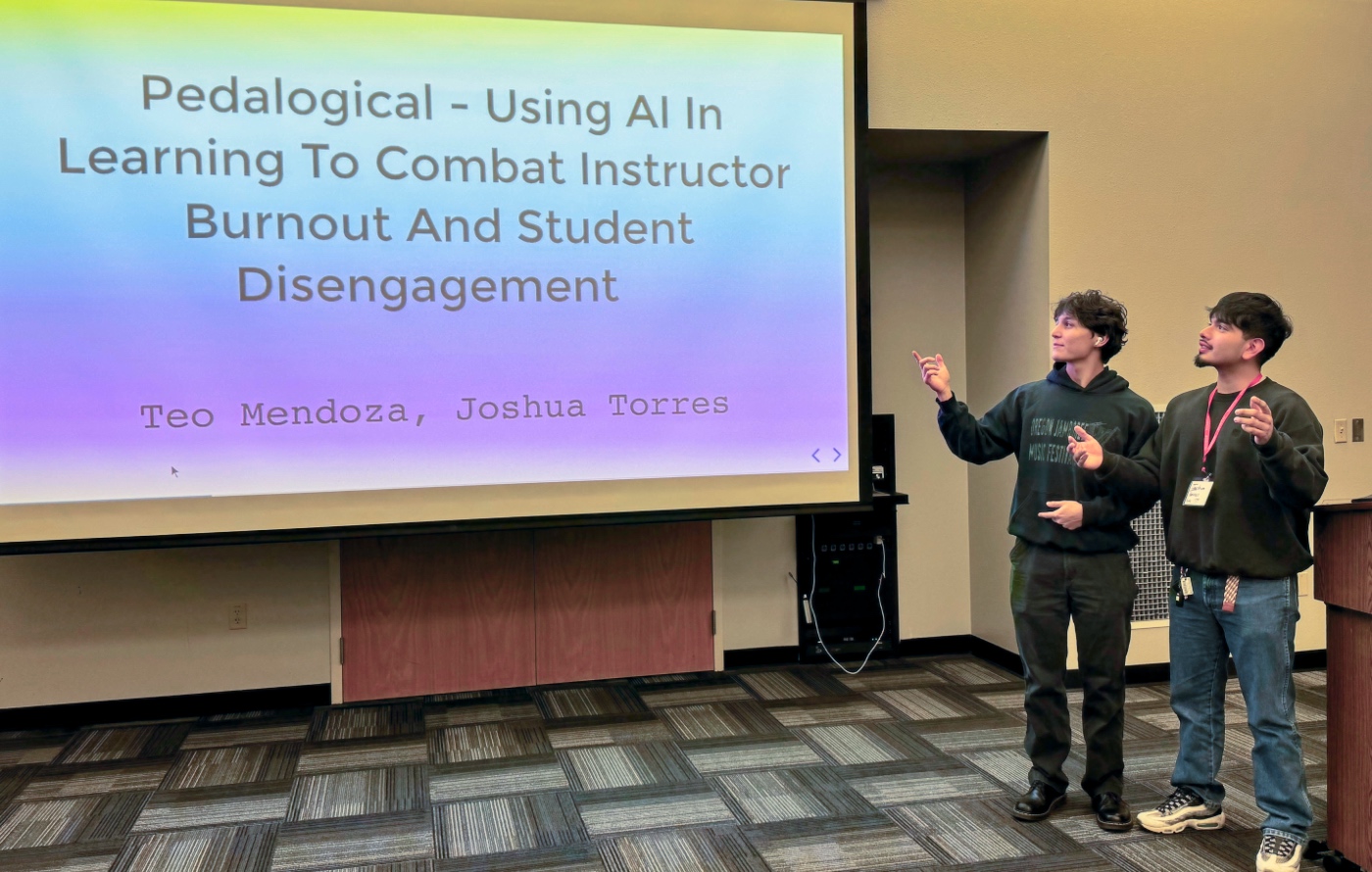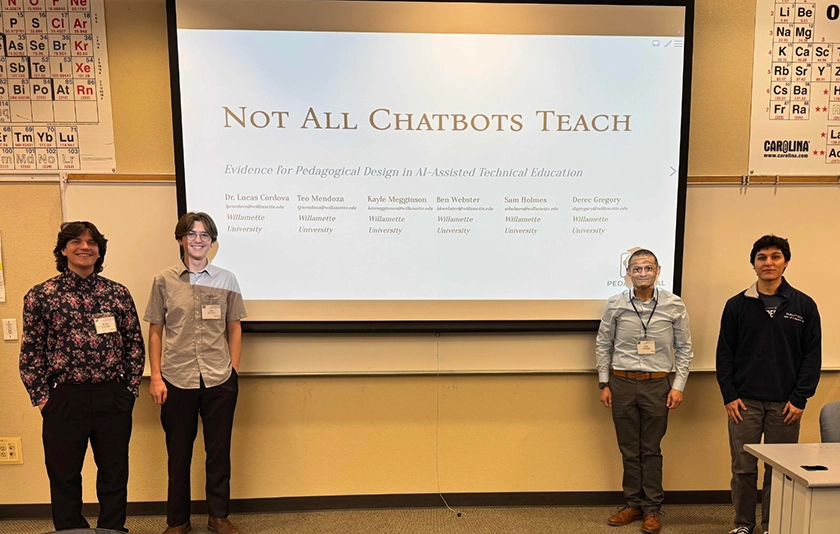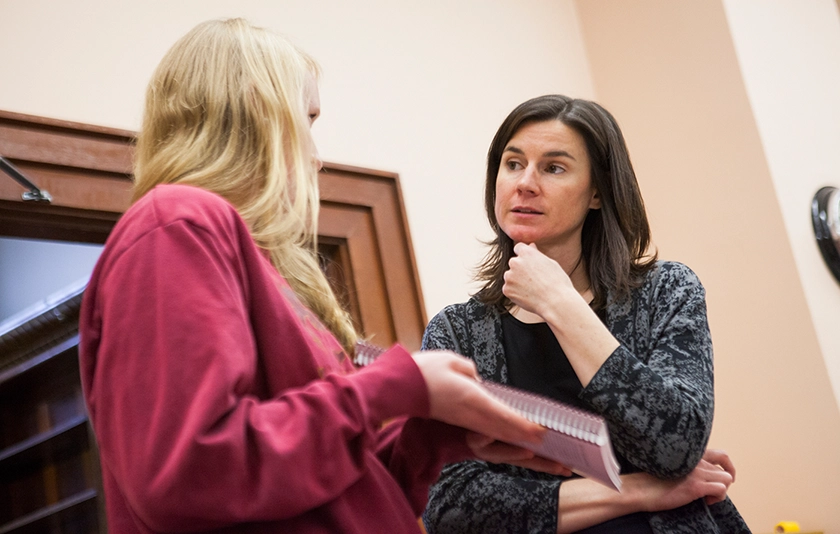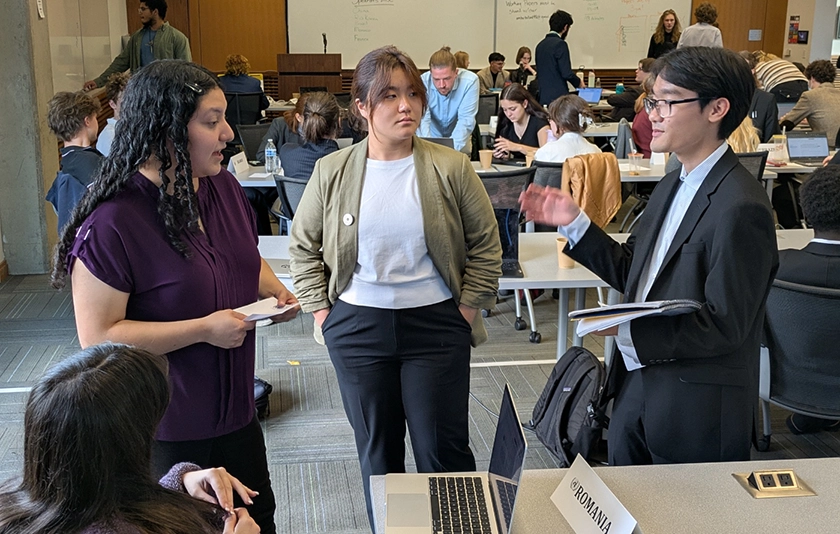Artificial intelligence has transformed nearly every aspect of modern life, including education. While AI in education presents challenges such as academic integrity concerns and data privacy issues, it also has the potential to make a transformative impact on the ways we teach and learn. Willamette students Teo Mendoza BS’27 and Sam Holmes BS’27 explored this potential in their award-winning interdisciplinary computer science research presented at the prestigious Murdock College Science Research Conference.
Their research project, “Pedagogical — Reimagining Education with AI,” won the Poster Prize in the Neuroscience-Psychology-Exercise Science category. In collaboration with Assistant Professor of Computer Science Lucas Cordova, the students completed the project as part of Willamette’s Science Collaborative Research Program (SCRP), a nine-week summer research program that supports innovative student and faculty research collaborations.
By generating specific prompts for a language learning model, the team of researchers combined computer science and psychology to create a tool that generates assignments specific to individual students’ knowledge and comprehension of classroom material. Mendoza and Holmes’ ability to clearly articulate what problem their technology was designed to solve helped their poster stand out with the judges.
“Something that set our poster apart was making it into a narrative with a live demo,” said Holmes, a Computer Science and Math double-major. “We established the problem we’re trying to solve, then criteria for a solution, our psychological research and its implementation, and at the very end, we showed how to create a solution that fits all these criteria through a live demo on a computer.”
“Using OpenAI’s GPT 4, we created an online learning tool to help both instructors and students,” shared Mendoza, a Computer Science and Math double-major. “Our goal is to reduce instructor burnout by eliminating the amount of time needed to create assignments but also assist students in their learning process through individualized lessons.”
The team of summer researchers also included Psychology and Business major Joshua Torres BS’27 and Computer Science, Math, and Physics Major Gavin Smith BS’27, who worked with Mendoza, Holmes and Cordova to develop their classroom tool.
“The team was particularly motivated by the challenges educators face every day in trying to keep students engaged without burning ourselves out,” Cordova shared. “This dovetails with my current research, where I focus on building pedagogical tools that improve learning.”
Cordova is also undertaking a larger research project in collaboration with PhD students from the University of Alabama and Augusta University to build pedagogical tools for software engineering education. “As we're building out this tool, I'm including some ideas from the SCRP project and incorporating them into the other tools we've built,” he adds. “We're missing an opportunity if we don't incorporate our undergraduates in research because they have such fresh perspectives.”
“Prof. Cordova’s mentorship was a big reason I stayed motivated,” said Mendoza. Holmes echoed, “In and out of the project, I could wander into his office, and he'd help me out but never make me feel bad about not knowing how to do something.”
Mendoza and Holmes, who aspire to be college professors and researchers, found new confidence from the opportunity to spearhead a faculty-student research project in a cutting-edge field.



